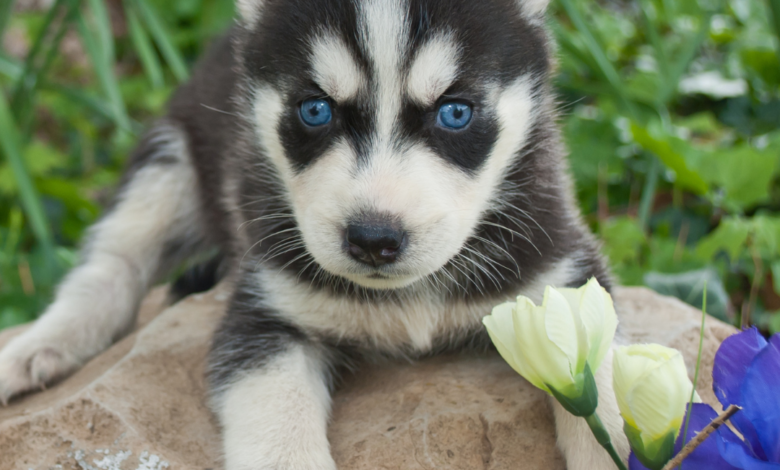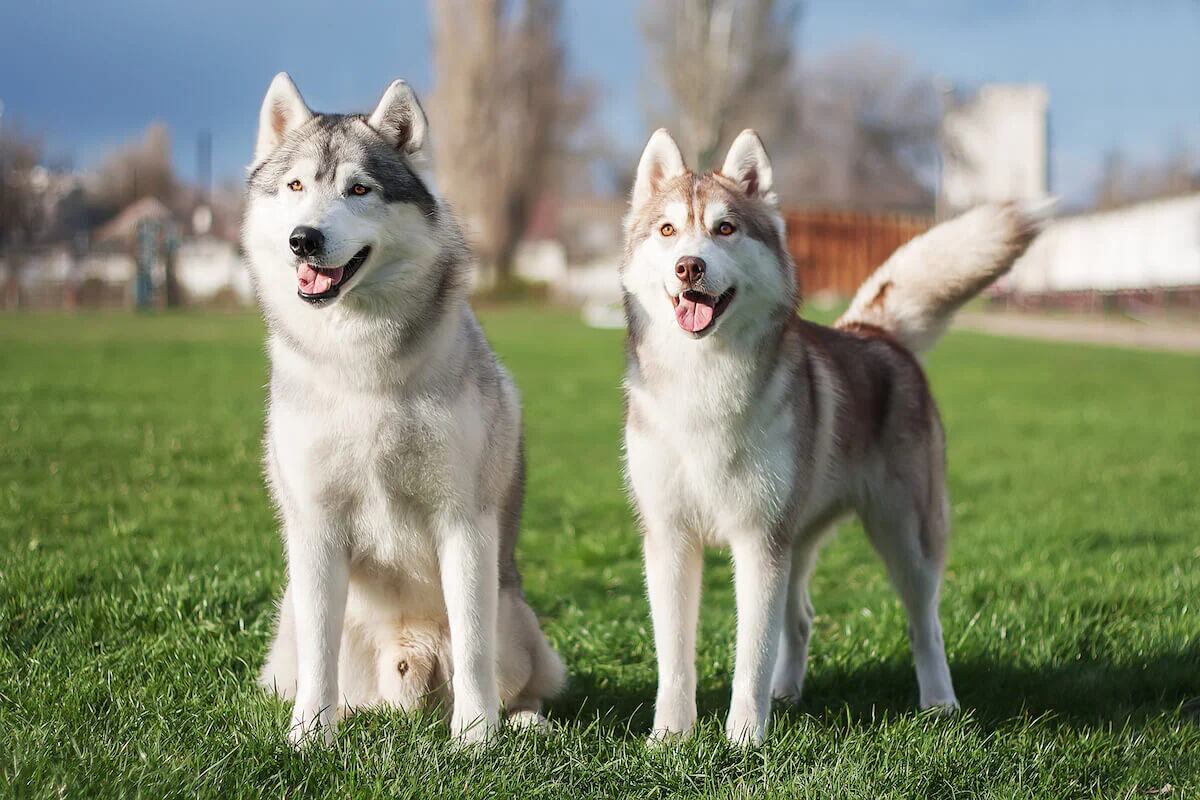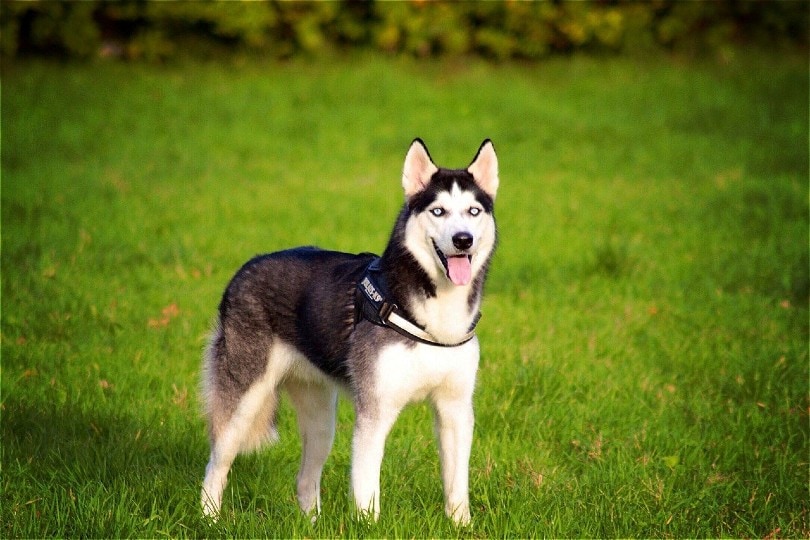How Long Do Huskies Live: Unveiling Their Lifespan

Huskies typically live for around 12 to 15 years. These beautiful and energetic dogs have a relatively long lifespan compared to other breeds.
Huskies are known for their stunning appearance and lively temperament. They have a strong desire to explore and can be quite mischievous at times. However, despite their playful nature, they are also known to be loyal and affectionate companions. Proper care and a healthy lifestyle are crucial to ensuring a long and happy life for your Husky.
Regular exercise, a balanced diet, and routine veterinary check-ups are essential for maintaining their overall well-being. It’s important to note that individual factors such as genetics, environment, and overall health can also influence a Husky’s lifespan. By providing love, attention, and proper care, you can help your Husky live a fulfilling and enjoyable life for many years to come.
Husky Longevity: A Snapshot
Average Lifespan
Huskies have an average lifespan of 12-15 years.
Factors Influencing Longevity
- Genetics play a crucial role in a husky’s lifespan.
- Regular exercise and a balanced diet can enhance longevity.
- Quality healthcare and routine vet check-ups are essential.

Credit: nativepet.com
Genetic Makeup And Lifespan
Huskies have a genetic makeup that contributes to their lifespan. How Long Do Huskies Live? On average, they live between 12 to 14 years, but with proper care and a healthy lifestyle, some huskies can live even longer. Understanding their genetics can help ensure a longer and happier life for these beautiful dogs.
Huskies are one of the most popular dog breeds, known for their striking appearance and friendly personality. However, many pet owners wonder how long their furry friend will live. The lifespan of a husky can be influenced by various factors, including genetics and breed-specific health issues.
Breed-specific Health Issues
Like all dog breeds, huskies are prone to certain health issues. One of the most common health problems that huskies face is hip dysplasia. This condition occurs when the hip joint doesn’t develop properly, causing pain and mobility issues. Another common health issue in huskies is cataracts, which can cause blindness if left untreated. Other health problems that huskies may experience include:
- Progressive retinal atrophy
- Corneal dystrophy
- Epilepsy
- Hypothyroidism
It’s important for husky owners to be aware of these health issues and to provide their pets with proper veterinary care.
Inherited Traits
The lifespan of a husky can also be influenced by inherited traits. For example, some huskies may be more prone to certain health issues due to their genetic makeup. Additionally, factors such as exercise, diet, and environment can also impact a husky’s lifespan. To help ensure a long and healthy life for your husky, it’s important to provide them with regular exercise, a balanced diet, and regular veterinary check-ups. With proper care, huskies can live happy and healthy lives for up to 14 years or more.
The Importance Of Diet
Proper nutrition plays a vital role in the overall health and lifespan of your beloved Husky. Providing a well-balanced diet is essential for keeping your furry friend happy and healthy throughout their life. By understanding their nutritional needs and being aware of foods to avoid, you can ensure that your Husky lives a long and fulfilling life.
Nutritional Needs
Huskies have specific nutritional requirements that must be met to support their active lifestyle and maintain optimal health. A diet rich in high-quality proteins, healthy fats, and essential vitamins and minerals is crucial for their well-being. Protein is particularly important for Huskies as it helps to support their lean muscle mass and provide them with the energy they need for their daily activities.
In addition to protein, Huskies also require a balanced amount of carbohydrates. Carbs act as a source of energy and help to fuel their active nature. However, it’s important to choose complex carbohydrates such as whole grains and vegetables over simple sugars, as they provide a more sustained release of energy.
Omega-3 fatty acids are another vital component of a Husky’s diet. These healthy fats promote healthy skin and a shiny coat, as well as supporting brain and eye development. Including sources of omega-3 fatty acids like fish oil or flaxseed oil in their diet can help maintain their overall well-being.
Foods To Avoid
While it’s crucial to know what nutrients to include in your Husky’s diet, it’s equally important to be aware of foods that should be avoided. Some foods can be toxic or harmful to Huskies and should never be given to them. These include:
- Chocolate: Contains theobromine, which is toxic to dogs.
- Grapes and raisins: Can cause kidney damage.
- Onions and garlic: Can lead to anemia and other health issues.
- Avocado: Contains persin, which can be toxic to dogs.
- Dairy products: Many Huskies are lactose intolerant and can experience digestive issues.
It’s also important to avoid feeding your Husky foods that are high in salt, sugar, or artificial additives. These can have negative effects on their health and may contribute to weight gain or other health problems.
By providing your Husky with a nutritious and well-balanced diet, you can help ensure that they live a long and healthy life by your side. Remember to consult with your veterinarian to determine the best diet plan for your individual Husky’s needs.
Exercise And Activity Levels
Huskies have an average lifespan of 12-15 years, but regular exercise can help extend their life. Daily activity levels should include at least 30-60 minutes of exercise to keep Huskies healthy and happy. Regular walks, hikes, and playtime are essential for their physical and mental well-being.
Huskies are a highly active breed and require plenty of exercise and mental stimulation to keep them healthy and happy. This is especially important when it comes to their lifespan, as regular exercise and activity can help to extend their life expectancy.
Daily Exercise Requirements
Huskies should get at least 30-60 minutes of exercise per day, but ideally, they should get closer to 2 hours. This can include walks, runs, hikes, or playing in the backyard. It’s important to keep in mind that huskies are bred for endurance and love to run, so they will need more exercise than the average dog.
Mental Stimulation And Health
In addition to physical exercise, huskies also require mental stimulation to stay healthy and happy. This can include training sessions, interactive toys, and games like hide and seek. Mental stimulation can help to prevent boredom, which can lead to destructive behavior in huskies. In conclusion, keeping your husky active and mentally stimulated is essential to their overall health and can help to extend their lifespan. By providing them with regular exercise and mental stimulation, you can ensure that your husky lives a long and happy life.
Routine Health Care
Routine health care is essential for ensuring the well-being and longevity of your beloved husky. By providing regular veterinary check-ups, vaccinations, and preventative medicines, you can help your husky lead a long and healthy life.
Regular Vet Check-ups
Scheduling regular vet check-ups for your husky is crucial for early detection of any health issues. These visits allow the veterinarian to monitor your husky’s overall health, administer necessary vaccinations, and provide guidance on nutrition and exercise.
Vaccinations And Preventative Medicines
Vaccinations play a key role in protecting your husky from common diseases and illnesses. Your veterinarian will recommend a vaccination schedule tailored to your husky’s specific needs. Additionally, preventative medicines, such as flea and tick treatments, are essential for maintaining your husky’s health.

Credit: www.dogster.com
Common Health Problems In Huskies
Huskies are prone to several health problems, including hip dysplasia, cataracts, and epilepsy. On average, Huskies live for 12-14 years, but with proper care and attention to their health needs, they can live up to 15 years.
Hip Dysplasia
Hip dysplasia is a common health problem in Huskies that affects their hip joint. It occurs when the hip socket and the thighbone do not fit together properly. This condition can lead to pain, lameness, and difficulty in walking or running. Huskies are genetically predisposed to hip dysplasia, and factors such as rapid growth, obesity, and poor nutrition can exacerbate the condition. Some ways to manage hip dysplasia in Huskies include:
- Maintaining a healthy weight through a balanced diet and regular exercise.
- Providing joint supplements such as glucosamine and chondroitin.
- Using orthopedic beds and providing soft surfaces for your Husky to rest on.
- Avoiding activities that put excessive strain on the hips, such as jumping or climbing stairs.
- Consulting with a veterinarian for further treatment options, including medications or surgery if necessary.
Eye Conditions
Huskies are prone to various eye conditions that can affect their vision and overall well-being. It is important to monitor your Husky’s eyes and seek veterinary attention if you notice any abnormalities. Some common eye conditions in Huskies include:
- Cataracts: Cataracts are characterized by the clouding of the lens in the eye, leading to impaired vision. They can be hereditary or develop due to age or other underlying health conditions.
- Progressive Retinal Atrophy (PRA): PRA is a degenerative eye disease that affects the retina, leading to progressive vision loss and eventual blindness. It is important to have regular eye exams for early detection of PRA.
- Corneal Dystrophy: This condition involves the abnormal development of the cornea, which can result in cloudiness and discomfort. Regular eye examinations can help identify corneal dystrophy and determine the appropriate treatment.
- Glaucoma: Glaucoma is a condition characterized by increased pressure within the eye, which can damage the optic nerve and lead to vision loss. It is essential to seek immediate veterinary care if you notice symptoms such as redness, excessive tearing, or squinting.
Regular eye examinations by a veterinarian, maintaining good hygiene, and providing a healthy diet rich in antioxidants can help minimize the risk of eye conditions in Huskies. It is crucial to consult with a veterinary professional for proper diagnosis, treatment, and prevention strategies for your Husky’s specific eye needs.
The Role Of Spaying/neutering
Spaying/neutering plays a crucial role in the lifespan of Huskies. By reducing the risk of certain health issues and preventing unwanted litters, it can help Huskies live longer and healthier lives.
Spaying or neutering your husky can influence their lifespan and behavior. Let’s explore the impact of this procedure on your furry friend.
Impact On Lifespan
Spaying or neutering can increase a husky’s lifespan by reducing the risk of certain diseases. It helps prevent reproductive-related cancers.
Behavioral Benefits
Spaying or neutering can reduce aggressive behaviors in huskies. It can help prevent roaming and marking behavior.
Aging Signs In Huskies
Huskies are remarkable companions known for their energy and playful nature. As these dogs age, it’s essential to be aware of the signs indicating they are entering their senior years.
Physical Changes
- Grey fur around the muzzle
- Cloudy eyes and reduced vision
- Decreased muscle tone
Behavioral Changes
- Increased sleeping
- Less interest in playtime
- Confusion or disorientation
Enhancing Your Husky’s Life
Comfort In Old Age
Provide a cozy bed to support joint health.
Include soft blankets for warmth and comfort.
Quality Of Life Improvements
Ensure a balanced diet for overall health.
Regular exercise to keep them active and happy.
Tales Of Long-lived Huskies
Huskies are known for their striking appearance and playful demeanor. Let’s delve into the fascinating world of long-lived Huskies and explore the tales of these remarkable companions.
Record Ages
Discovering the record ages of Huskies sheds light on their potential for exceptional longevity:
- Oldest recorded Husky lived to be 29 years old
- Several Huskies have reached 25 years of age
Factors Behind Exceptional Longevity
Various factors contribute to the exceptional longevity of Huskies:
- Healthy diet rich in nutrients
- Regular exercise and ample playtime
- Proper healthcare including regular vet check-ups
- Genetic predisposition to longevity

Credit: www.dogster.com
Frequently Asked Questions
How Long Do Huskies Live On Average?
Huskies typically live for 12 to 15 years. Providing proper nutrition, regular exercise, and routine veterinary care can contribute to their longevity.
What Factors Can Affect A Husky’s Lifespan?
The lifespan of a husky can be influenced by genetics, diet, exercise, and healthcare. Ensuring a balanced diet, regular exercise, and preventive healthcare can positively impact their lifespan.
How Can I Help Prolong My Husky’s Life?
To extend a husky’s lifespan, provide a nutritious diet, regular exercise, veterinary check-ups, dental care, and a safe environment. Maintaining a healthy weight and preventing parasites also contributes to their longevity.
Conclusion
The lifespan of a Husky can vary but generally ranges from 12 to 15 years. By understanding their unique needs and providing proper care, you can help your Husky live a long and healthy life. Regular exercise, a balanced diet, and routine veterinary check-ups are essential for ensuring your Husky’s longevity.





